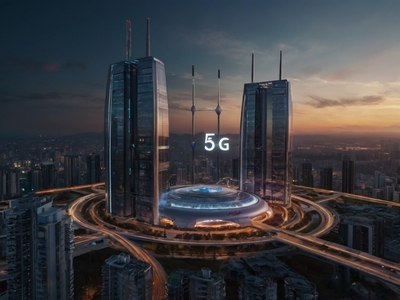As we advance towards 2031, the 5G Enterprise Market is expected to undergo significant transformation, driven by technological innovations and evolving business needs. This article delves into the key trends shaping the future of 5G in the enterprise sector, highlighting how organizations can leverage these changes for growth and efficiency.

1. Accelerated Digital Transformation
One of the foremost trends in the 5G Enterprise Market is the acceleration of digital transformation across industries. Businesses are increasingly adopting 5G to enhance their digital capabilities, driven by the technology’s high-speed connectivity and low latency. This shift is particularly evident in sectors such as manufacturing, healthcare, and logistics, where real-time data processing and communication are critical.
In manufacturing, for instance, 5G enables the integration of advanced technologies like the Internet of Things (IoT), artificial intelligence (AI), and robotics. This combination facilitates smart factories where machinery and systems communicate seamlessly, optimizing production processes and reducing operational costs. Similarly, in healthcare, 5G supports telemedicine and remote diagnostics, enabling high-quality patient care regardless of geographical barriers.
2. Growth of Edge Computing
Another significant trend is the rise of edge computing, which works in tandem with 5G to process data closer to its source. This approach reduces latency and bandwidth usage, resulting in faster and more efficient data handling. Edge computing is becoming increasingly important as enterprises deploy more IoT devices and generate vast amounts of data.
For example, in smart cities, edge computing combined with 5G can enhance traffic management systems by analyzing data from sensors and cameras in real-time. This enables more responsive and efficient traffic control, reducing congestion and improving overall urban mobility.
3. Expansion of Private 5G Networks
The deployment of private 5G networks is a growing trend in the enterprise sector. Unlike public networks, private 5G networks are tailored to meet the specific needs of individual organizations, offering enhanced security, reliability, and control. These networks are particularly beneficial for large enterprises and industries with critical infrastructure.
In sectors such as manufacturing and logistics, private 5G networks enable organizations to create dedicated, high-performance networks for their operations. This setup ensures that sensitive data remains secure and that the network can handle high traffic volumes without interference from external sources.
4. Enhanced Industry-Specific Applications
The 5G Enterprise Market is witnessing an expansion of industry-specific applications tailored to leverage 5G’s capabilities. For instance, in the automotive sector, 5G supports the development of connected and autonomous vehicles, enabling real-time communication between vehicles and infrastructure. This enhances safety, efficiency, and the overall driving experience.
In the retail sector, 5G facilitates the implementation of immersive technologies such as augmented reality (AR) and virtual reality (VR). These technologies enhance customer experiences by enabling virtual try-ons and interactive shopping experiences, driving consumer engagement and sales.
5. Challenges and Considerations
While the prospects of the 5G Enterprise Market are promising, there are challenges to consider. The high cost of deploying 5G infrastructure and maintaining private networks can be a significant barrier for some organizations. Additionally, ensuring robust cybersecurity measures is crucial, as the increased connectivity of 5G networks introduces new vulnerabilities and potential threats.
Regulatory and spectrum management issues also pose challenges for widespread 5G adoption. Addressing these challenges requires collaboration between businesses, technology providers, and regulatory bodies to ensure a smooth transition and deployment.
6. Future Outlook
Looking ahead to 2031, the 5G Enterprise Market is poised for substantial growth. As technology advances and becomes more accessible, the adoption of 5G is expected to broaden across various industries. Organizations that invest in 5G technology and stay abreast of emerging trends will be well-positioned to capitalize on the opportunities presented by this transformative technology.
In summary, the 5G Enterprise Market is evolving rapidly, driven by digital transformation, edge computing, private networks, and industry-specific applications. By understanding these trends and addressing associated challenges, businesses can navigate the future of connectivity and leverage 5G for competitive advantage.
No responses yet